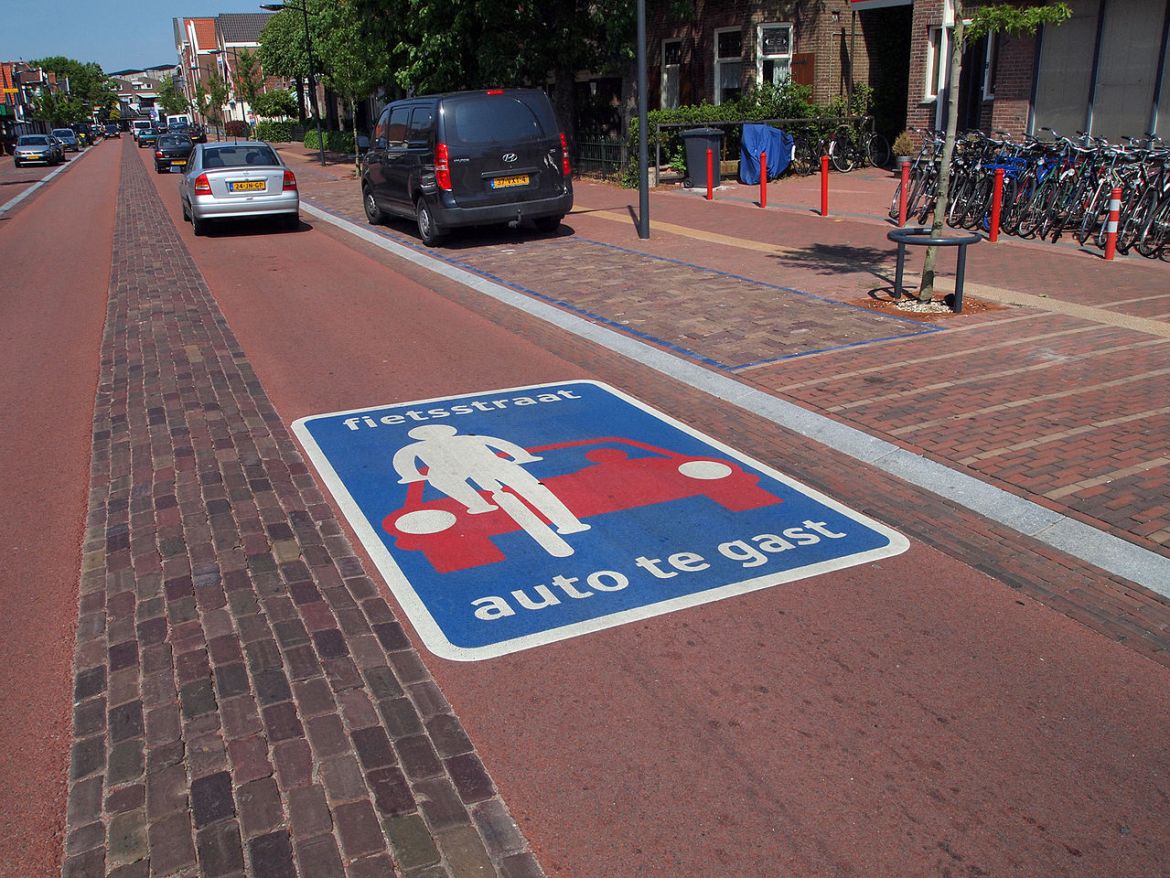EU governments have called for a ‘green deal’ for transport in Europe, promising new money and laws to support cycling and walking in towns and cities across the continent.
Meeting in Graz, Austria, EU transport and environment ministers promised a rapid transformation and called for a “new era” of “clean, safe and affordable mobility for Europe”.
Green groups hailed the document as a potential “turning point” with the statement which describes a “green deal” for EU transport, backed by all 28 governments.
Margherita Tolotto, Clean Air Policy Officer at EEB said: “Ministers are making an important statement of intent about the ‘green deal’ Europe needs to transform the way we get around.”
She concluded:
“People across Europe want to live in clean, safe and liveable cities and this means fundamentally addressing our transport requirements”
A “transformation” of European mobility
The statement calls for a rapid change in transportation in order for Europe to meet its commitments under the Paris Climate Agreement. It uses the word “transformation” no less than six times in its first three paragraphs.
Environmental groups say that reducing the climate impact of transport has clear wider benefits as more ‘active mobility’ – like travelling by foot or bike – not just reduces air pollution but also boosts our health.
Where did you ride your bike on #WorldBicycleDay? Don’t forget, cycling is good for your health and the planet! @c40cities @UN pic.twitter.com/s1P1LeIC7Q
— Peter Sagan (@petosagan) 4 juni 2018
More money for cycling, walking and safer streets
Governments have promise to take the health benefits of different transport infrastructure into account when allocating EU funding. This should increase the amount of money available for important infrastructure like bike lanes and safer streets.

They make a commitment to “active” and “safe and inclusive” mobility, acknowledging “human-powered mobility” as an equal mode of transport. They also make an explicit call for European funding for the “development and implementation of plans, programmes and projects” on active mobility.
Supporting the transition to cleaner vehicles
Ministers have backed the accelerated introduction of low- and zero-emission vehicles, including the development of charging infrastructure.

Julia Poliscanova, Clean Vehicles and Air Quality Policy Officer at Transport & Environment, welcomed the fact that ministers were “finally putting mobility on the agenda” but pointed out that:
“Europe doesn’t need to wait until 2021 to deliver on “sustainable, clean, safe, affordable and inclusive mobility”.
Poliscanova stressed that law already being discussed now, such as the future CO2 standards for cars, vans and trucks and the new General Safety regulations could deliver on this goal. She warned that:
“…instead of big words and new declarations, ministers should get down to business and agree these laws promptly.”
Others warned that cleaner vehicles were just a part of the solution. Tolotto said:
“While zero-emissions mobility is a priority, a traffic jam of zero-emissions cars is still a traffic jam and speeding vehicles can still pose a threat to vulnerable road users. That’s why it’s so important to think not just in terms of cutting emissions from vehicles, but also about how we can rebuild cities so they’re better places to live.”
European Mobility Week
The popular ‘European Mobility Week’ initiative will be strengthened to help raise awareness about alternative forms of transport and encourage people to try out a different way of getting to work or school.
In Belgium the Mobility Week initiative has led to the creation of popular annual ‘Car Free Sundays’ in many cities. It is hoped that this kind of initiative could be extended across Europe.
Pollution dropped by 30% in Brussels during car-free Sunday and now mayors want the idea to be rolled out across all of Europe #BrusselsForPeople https://t.co/0DX2QuzLqR pic.twitter.com/kGVklG4wHk
— EURACTIV Energy and Environment (@eaEnergyEU) 17 september 2018
Elephant in the room
But Green groups warned it wasn’t all good news. The statement omits any reference to crucial emissions standards for CO2 from cars and vans up to 2030, which are currently being debated between the European Parliament and national governments.
Ministers have called for a further development of “emission regulations for road vehicles beyond 2030” but many campaigners say this is a decade later than required.
Green transport group Transport & Environment have been particularly critical of Germany and the ‘Visegrad’ group of countries for blocking greater ambition on cleaner vehicles.
Germany and Visegrad, aided by EU Commission, block ambitious car emission cuts.
EU countries agreed to reduce carbon emissions from new cars by just 35% in 2030. Also, 15% CO2 cut for cars and vans in 2025 and a 30% van target for 2030.
Our full reactionhttps://t.co/l2WlV3Qxw1— Transport & Environment (@transenv) 9 oktober 2018
A ‘green deal’ for…
Tolotto argues that the “green deal” for transport must now be extended to other areas:
“Ultimately, the EU needs a ‘green deal’ that goes beyond transport and helps us tackle air pollution from other sources, like industry and agriculture, as well as helping to tackle the other major environmental issues of our time.”


